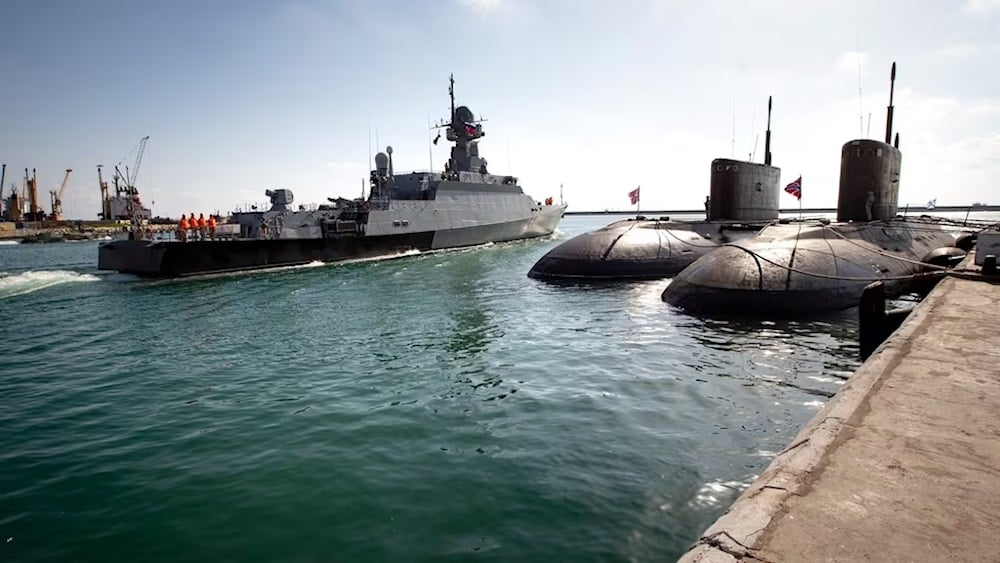Damascus authorities terminate Russian contract for Tartus port
The new Syrian authorities are reportedly working to boost commercial activity at the port by cutting customs fees by 60%.
-

A navy missile ship departs the Russian naval facility in Tartus, Syria. (AP)
Syria's transitional government has taken a decisive step to reduce Russian influence by canceling a long-standing contract with a Russian company managing the Tartus port. Riyad Judi, director of the customs department in Tartus, confirmed the development to al-Watan newspaper on Monday, noting that the revenues from the port would now go entirely to the Syrian state.
The agreement, originally signed in 2019 under Bashar al-Assad's government, granted the Russian firm Stroytransgaz control over the port for 49 years. In return, the company would invest $500 million in the port, keeping 65% of the profits while the Syrian government retained the remaining 35%.
The Tartus port, Syria's second-largest after Latakia, is a critical Mediterranean hub with a capacity of four million tons annually and home to Russia's only naval base in the region. Established in 1971 by the Soviet Union and later expanded in 2017, the base has served as a strategic outpost for Russian military operations in the Middle East.
The new Syrian authorities are reportedly working to boost commercial activity at the port by cutting customs fees by 60%. Judi highlighted the "excellent" activity at Tartus, with ships from Syria, Arab nations, and international operators transporting goods like iron, sugar, and carbonates.
Balancing Russian ties amid western pressure
The decision to cancel the contract comes as Syria's new leadership faces mounting pressure from Western nations to sever ties with Moscow in exchange for easing economic sanctions. European officials have reportedly linked the lifting of sanctions to Syria distancing itself from Russia.
However, Syria's leadership has so far resisted calls to cut ties with Moscow. Ahmad al-Sharaa, the leader of the transitional government, previously affirmed Syria's strategic partnership with Russia during an interview with Al Arabiya, calling Russia "the second most powerful state in the world" and highlighting the long-standing relationship between the two nations.
Read more: Syria's new leadership asserts strategic alliance with Russia
Coinciding with the contract termination, the Russian cargo ship Sparta II docked at Tartus after reportedly waiting offshore for two weeks. Media reports suggest the ship carried military equipment, though these claims remain unverified. The docking indicates Russia's continued presence and influence in Syria, even as the new government recalibrates its foreign policy.
Future of Russian military bases
The fate of Russia's military bases in Syria—Tartus and Khmeimim—remains uncertain. Reports suggest Russia has redeployed some assets to other Middle Eastern locations, including Libya, following the ousting of Bashar al-Assad. Despite this, Russian Deputy Foreign Minister Mikhail Bogdanov has noted that Moscow remains in contact with Syria's transitional government to ensure the continued operation of its bases and broader cooperation.
Russian officials have underscored the strategic importance of their presence in Syria, citing the Tartus naval base and Khmeimim airbase as critical assets for regional stability and counterterrorism operations. Bogdanov has reiterated that Russia's military presence will not be abandoned and remains essential to its broader geopolitical goals in the Middle East.

 3 Min Read
3 Min Read








